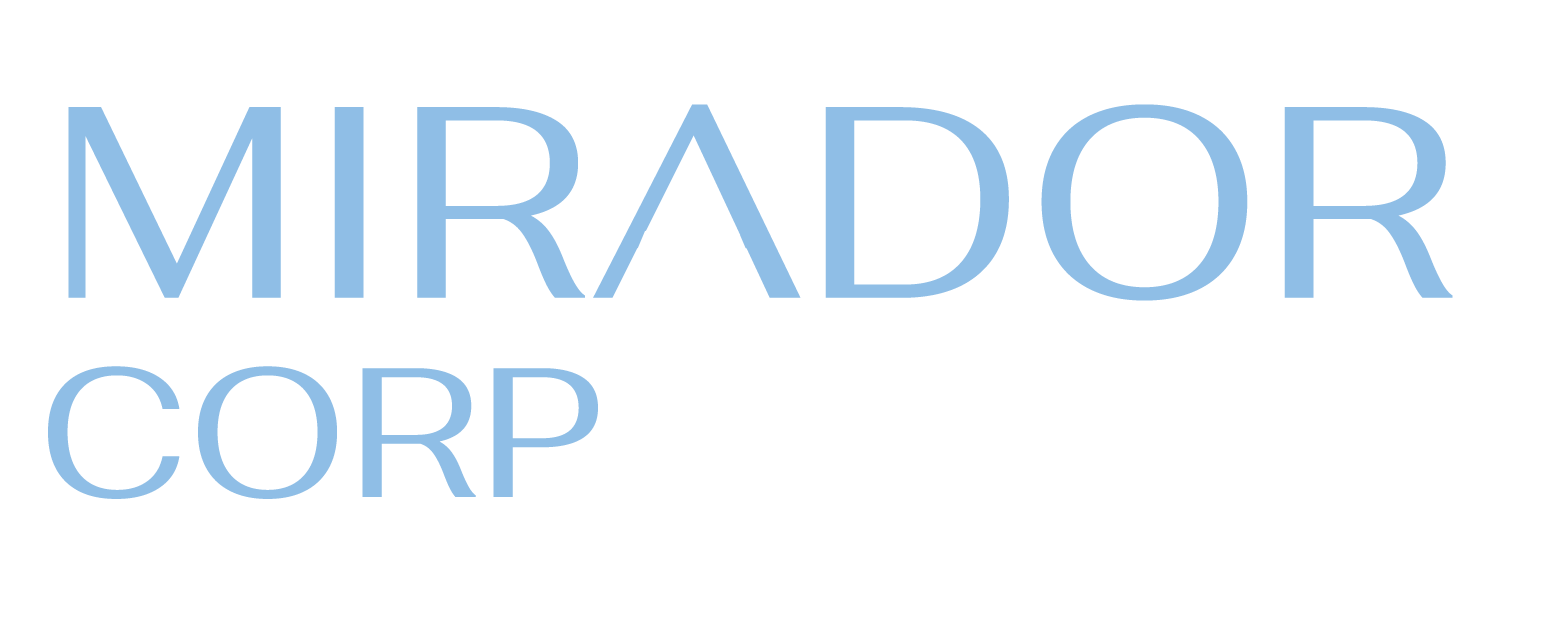Mirador Real Advice Blog
When Should I Apply for CPP?
May 28, 2024
Our answer? It depends…
The standard retirement age to start CPP is 65. However, individuals may elect to start CPP as early as age 60 and as late as age 70. If one opts to start CPP early, the CPP benefit decreases by 0.6% for each month prior to their 65th birthday. Conversely, if one opts to start CPP later, the CPP benefit increases by 0.7% for each month past their 65th birthday. This means that the choice as to when to start CPP can have a significant impact on the amount of the monthly payment and the cash flow you receive in your retirement years.
Mathematically Speaking
From a purely mathematical perspective, if an individual has a shortened life expectancy and they do not expect to live beyond the age of 74, then the benefit of higher future CPP payments may be negated, and it may make sense to start CPP before the age of 65. If one expects to live until at least the low to mid-80s, then it may make sense to defer CPP past the age of 65.
The decision of when to start CPP is on a continuum from age 60 to 70. But one should NEVER make this decision solely based on the math. You should always consider your personal circumstances – factors such as your health, your family history, your cash flow needs, desired lifestyle and retirement plans, and your tax situation – as well as the overall economic environment.
Let’s look at some real-life examples to demonstrate how these factors can impact where on the continuum you start your CPP.
Current Income Levels and Tax Situation
We recently had dinner with some very good friends, one of whom recently turned 65. In prior discussions, he had indicated that his plan was to start CPP at age 65, so we joked about what he was going to do with “all of his extra money” now that he had started receiving CPP.
Our friend is a rancher. As a result of the drought conditions in the past several years, he was forced to sell more cattle than usual, resulting in significant ranch income, pushing him into a higher tax bracket.

And, despite the wet weather this week, there are many predictions for continued drought conditions which would result in him reducing his herd further and creating continued higher income. As a result, it made the most sense to defer applying for CPP for now. Had he started drawing CPP at age 65, he would have paid almost half of the amount received to the government in taxes!!
So, despite the fact that there is a history of heart issues in his family and his father and grandfather did not live to be very old, it made sense to defer the CPP until a time when his income was at more “normal” levels. What is important to understand is that he can revisit this decision at any time until he turns 70. If there are significant changes in his income levels so that his tax situation is “normalized” again, then he can send his application to the federal government and opt to start receiving CPP.
Uncertain Life Expectancy Due to Poor Health
A client of ours, Henry, was diagnosed with stage 4 cancer in his late 50’s. He had been healthy his whole life up to that point and had a very active lifestyle. He was financially successful, so he had a sizeable investment portfolio and was still working full-time. Prior to this health scare, he would have never contemplated receiving CPP before age 65 and may even have deferred it until age 70!
The cancer was in remission by the time Henry was 60 but the aggressive treatment he received to kill the tumors took a significant toll on Henry’s body and he worried that this would shorten his lifespan. As a result, even though he is in a higher tax bracket and does not need the additional income now, he decided to “take the CPP while he can” so that he could have some “fun money” – he applied to start receiving CPP at age 60.
With Henry’s experience in mind, be self-honest when it comes to assessing your own longevity. Consider your family history – how long did your grandparents and parents live? How is your current health – are you fit and active? Are you a smoker or a drinker? Do you eat well? How is your weight? How are your stress levels?
A Note About Actuarial Life Expectancy
It is also important to understand the longevity numbers often quoted by the media. The numbers that are often mentioned refer to the expected longevity of people born today, whereas there are tables published by Statistics Canada that provide more accurate life expectancies based on the year of your birth.
Due to factors such as improved medical care and treatments and improved knowledge of healthy living, people born more recently have increased longevity expectations versus those of us born in the 1960s and earlier.

Projected Income After Age 65
Another client of ours, Rose, is currently 59 and has been retired for a number of years. She is very healthy, has a family history on both her parents’ sides of longevity well into their nineties, and she has more than sufficient monthly cash flow to live her desired lifestyle.
If her decision as to when to start CPP was based purely on the math, she would have deferred starting CPP until age 70. However, we reminded Rose that the following should also be considered and may have a significant impact on her decision:
- Her $2 million RRSP means that she will have significant RRIF income once she turns 71 and is required to convert her RRSP to an RRIF and start drawing a minimum RRIF payment each year. The taxes saved by starting CPP as early as age 60 when she is in a much lower tax bracket may more than offset the CPP benefit given up by starting at an earlier age. It could also potentially help minimize OAS clawbacks in future years.
- Because Rose retired early (and thus stopped making CPP contributions), she has had several years with zero income. Even though some zero or low-income years can be dropped when calculating how much CPP she would be entitled to, there is a cap. Deferring CPP may result in a lower CPP payment due to the increase in zero earning years (and thus lower average earnings utilized to calculate CPP).
- As Rose does not have any dependents, we did not have to take into consideration the survivor benefit.
After preparing a detailed analysis taking all these factors into consideration, the end result was that it made the most sense for Rose to start taking her CPP at age 60. And then running the data using our advanced planning software we could see that the results were favourable for Rose.
Retirement Plans
Will and Teri retired at 62 because their philosophy was to enjoy life now, while they are “young, healthy and energetic”. They have had a lifelong dream of travelling and seeing the world and they believed they would be able to do and see more now than if they waited until their 70’s when their physical abilities might be diminished. As a result, they decided that they would both start receiving CPP at 62 to help fund their dream, fully understanding that their monthly CPP would be lower. If they required additional cash flow in future years, their backup plan was to downsize their home and use the net proceeds to fund their future retirement years.
Your Financial Personality
Understanding your financial personality is also a consideration when making the decision as to when to start CPP. Do you worry about having sufficient funds in your later retirement years?

Does it cause you to lose sleep at night? Do you like certainty? There is a guaranteed 7.2% annual inflation-adjusted premium for waiting to start CPP at age 65 rather than age 60. And this premium increases to 8.4% per year if you wait until age 70! If you believe you will live for a very long time and you are a person who likes certainty, then deferring CPP can be very reassuring in your retirement years.
Current Economic Environment
The current economic environment may have an impact on your decision as to when to start CPP. Our client, Sally Weston, was 67 when the covid lockdowns hit in early 2020. Her plan had always been to defer starting CPP until age 70 to take full advantage of the 8.4% annual increase in CPP benefits for each year past 65. She was drawing a stipend from her investment portfolio each month in these interim years to cover her cash flow requirements.
We all remember the downturn in the stock markets during the Covid scare. Even though the Triopay unit trust was only down about half of what the overall markets were down, it was still negative and there was uncertainty as to when the markets would recover. Sally remembered Stan’s advice about minimizing drawdowns on one’s investment portfolio at a time when the markets are down. Because Sally was nervous about how long the stock markets would take to recover and because she likes certainty, she opted to start CPP and to stop drawing a monthly stipend from her portfolio. This would help ensure she had more $ in her investment account (more powder in the gun so to speak), to benefit from the market recovery.
A Note About Service Canada
Many articles on this topic include the detailed rules and regulations regarding government-sponsored plans like CPP and OAS. At Mirador we prefer to provide real advice examples that may help you through the process. The following Service Canada link provides more details with respect to when to start CPP;
CPP retirement pension: When to start your pension – Canada.ca

It is important to understand that if you are utilizing the Service Canada estimates to analyze your options, the Service Canada estimate assumes that you are age 65 now, which has the same effect as projecting your current lifetime average earnings until age 65. If your actual age and your actual earnings differ, then the Service Canada estimates may differ from the results when performing your own detailed analysis.
We can help! As you can see, there are many factors to consider and questions to ponder when contemplating When the RIGHT time is for YOU to start CPP. If you have any questions as you are pondering when to start your CPP, please do not hesitate to reach out to Joyce at 403-978-6798.
Joyce Clarke, CPA, CA
Making Investor’s Lives Better
